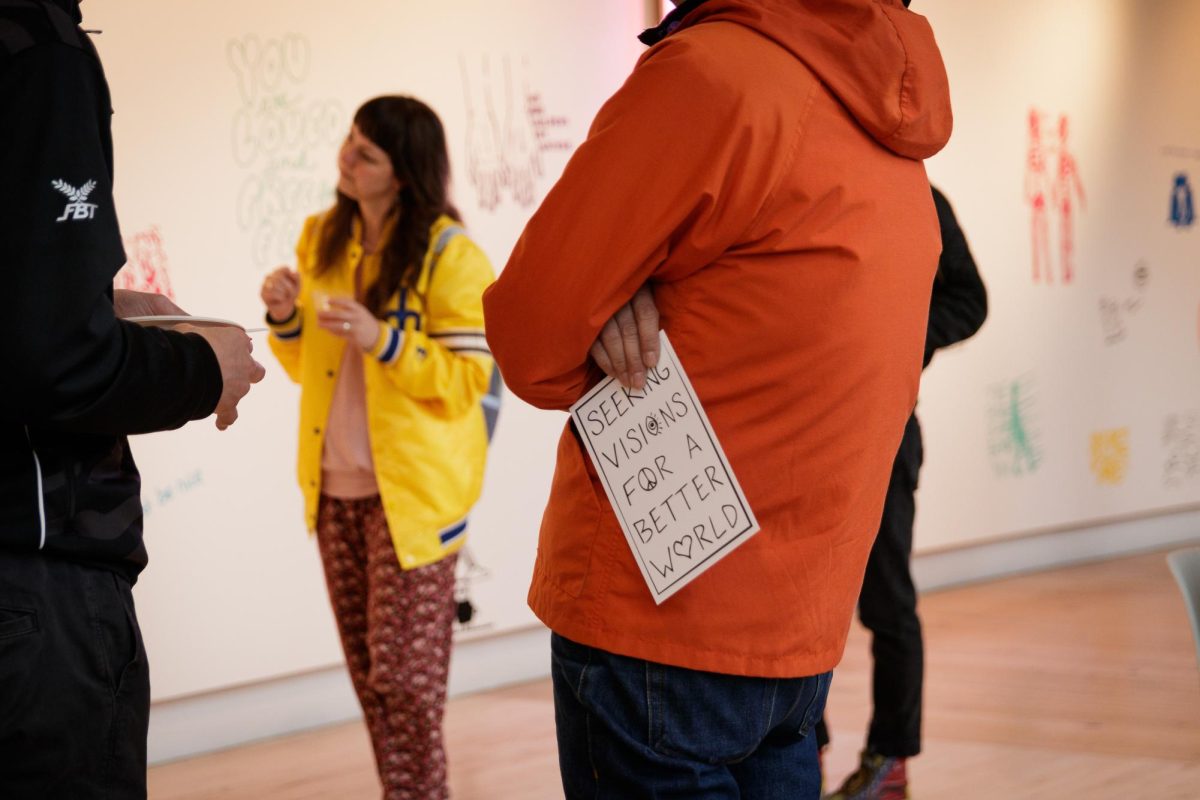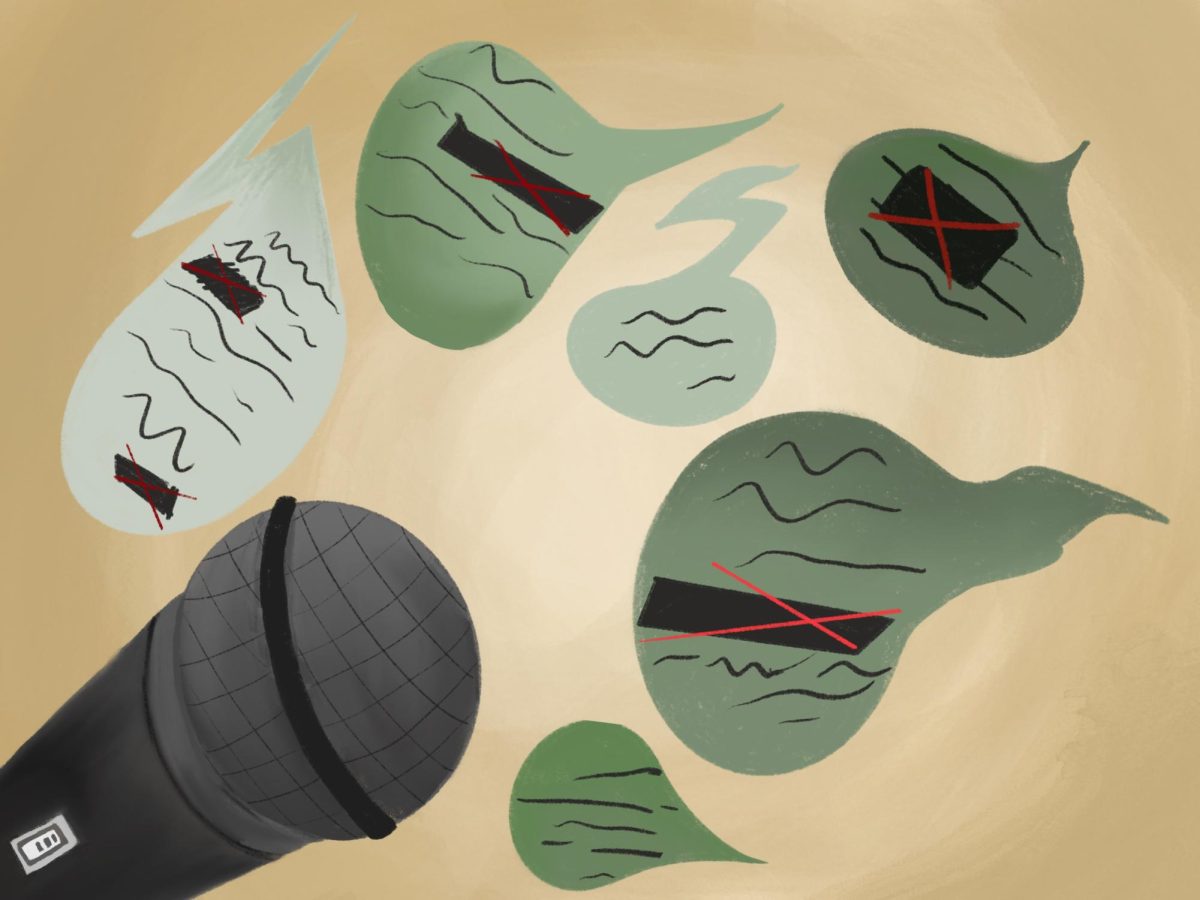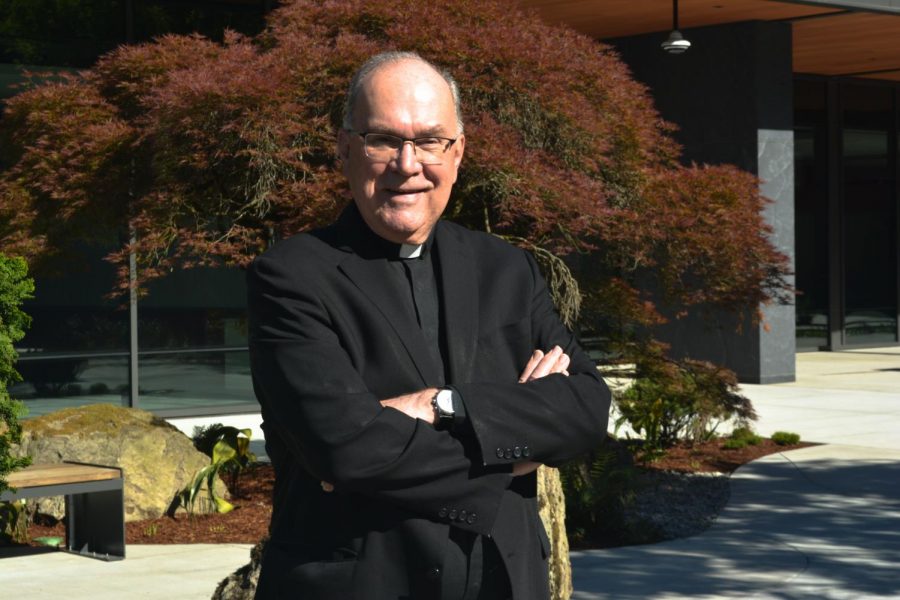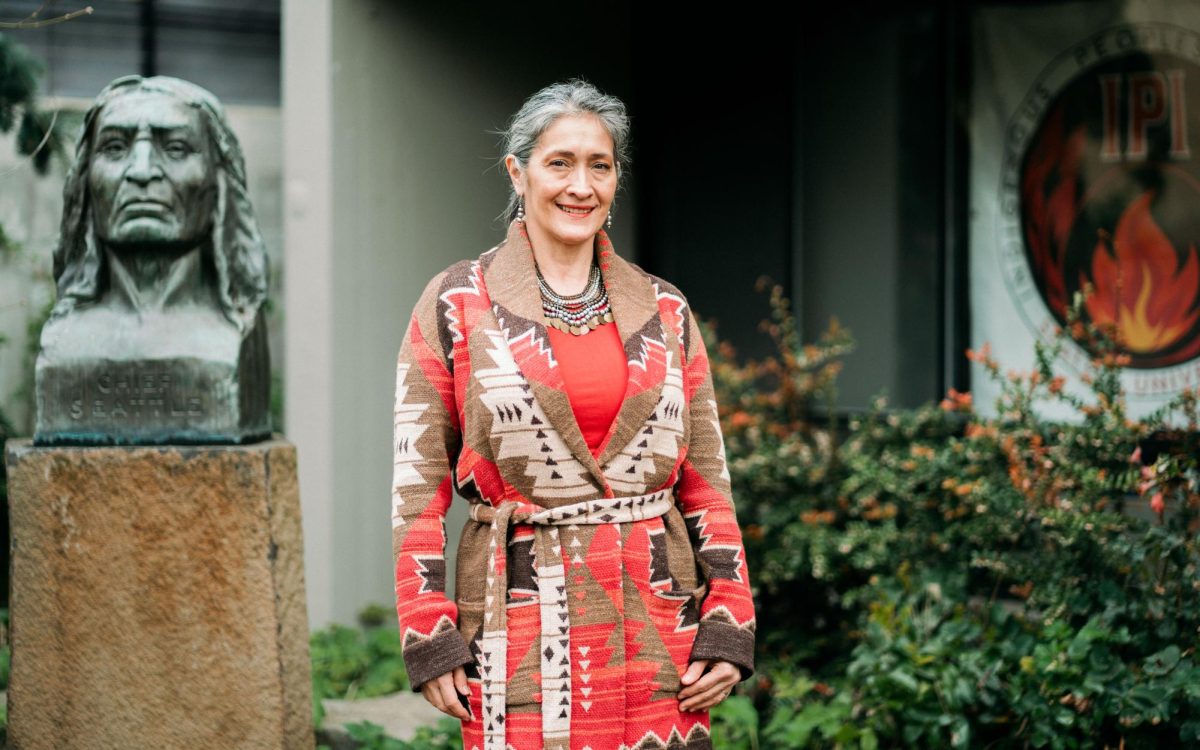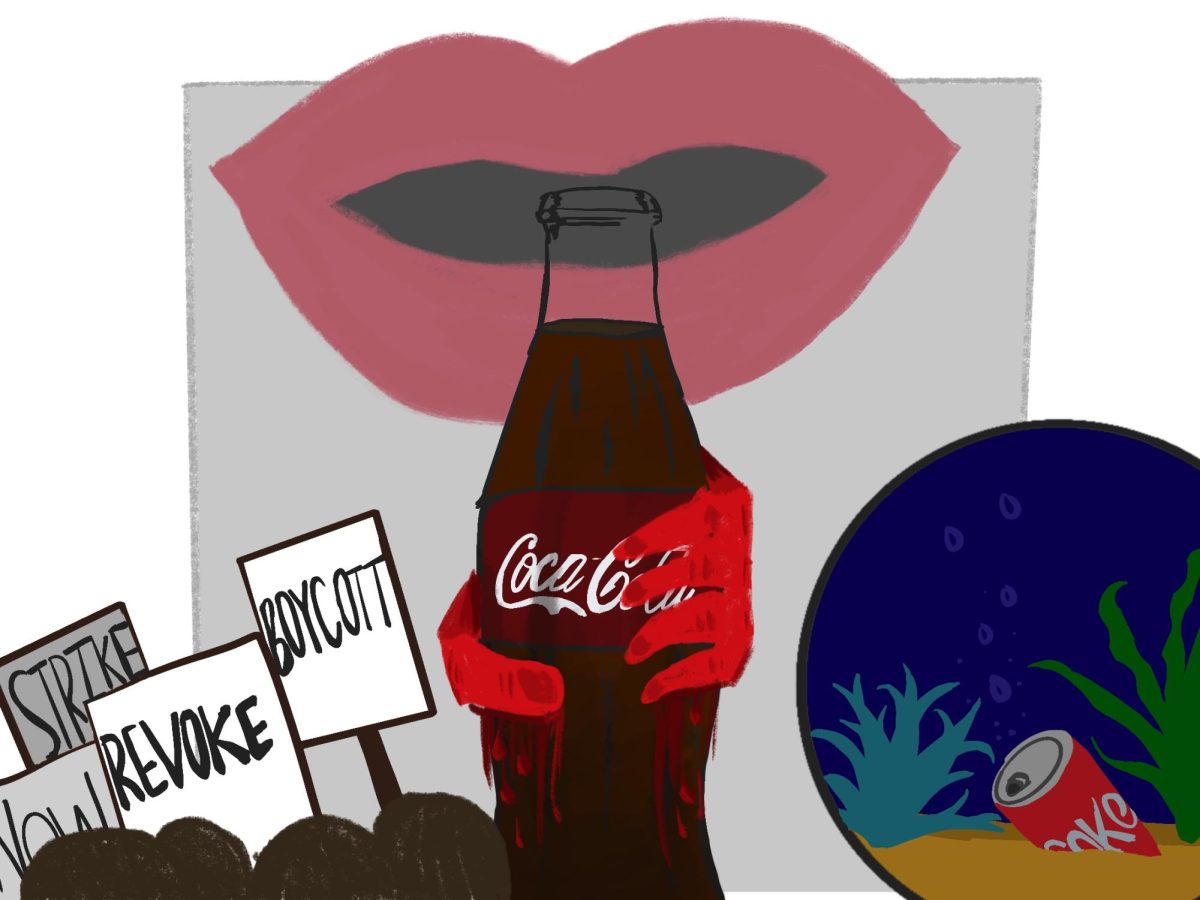“Civil War” is a brilliant piece of speculative fiction, immersing the viewer in an intense and haunting portrayal of a modern-day American civil war. The movie follows an unlikely team of war photographers as they road trip from New York to Washington D.C. to chase the ultimate story—an interview with the president.
Played by Nick Offerman, the commander-in-chief is an illusive figure in the movie. We see him rehearsing a speech of empty cliches in the opening shots and hear his increasingly unlikely claims of imminent victory over the staticky car radio every so often. We hear that he disbanded the FBI, is on his third term, and that he has used drone strikes on US civilians. No one seems to take him seriously.
The band of journalists consists of Lee Smith (Kirsten Dunst), the hardened, damaged and highly acclaimed career war photographer, Jessie Collen (Cailee Spaeny), the aspiring young rookie who idolizes Lee, and gets in over her head, Joel (Wagner Moura), a bit of an adrenaline junkie but still respectable journalist looking to capture the story at all costs, and Sammy (Stephen Hinderson), an aging NYT photographer and mentor figure for both Lee Smith and Joel. As Lee puts it, “the back seat is both a day care and an old folks home.”
If the characters sound cliched, they are a bit. But Alex Garland gives them heart, punctuating edge-of-your-seat action with haunting moments of intimacy. They drink profusely and watch tracer rounds light up the sky from the back of their car, camped out for the night behind an abandoned shopping mall, and Joel comforts Jessie, who isn’t used to the gunfire. Lee and Jessie discuss their own paths to journalism on the abandoned bleachers of a stadium turned civilian refugee camp, while Jessie develops a roll of film. Moments like these give the film its heart, and make watching these characters run around active firefights with cameras incredibly tense.
The film is beautifully detailed in its setting, similar to “Children of Men,” another incredible near-ish future thriller. A burnt out helicopter in a strip mall parking lot, corpses hanging from the overpasses of freeways congested with abandoned cars, snipers lurking on the roofs of a seemingly quiet suburb and burned out houses through car windows. These are the images that make “Civil War” eerily real.
Garland resists what a more childish director would have leaned into, Michael Bay-esque sequences of combat over the Statue of Liberty or other iconic symbols of America. Instead, the movie feels like a real portrayal of normality torn apart, as much of the action takes place in what really makes up America–small rest stop towns. Still, we get an incredible Washington D.C. sequence towards the climax.
The movie is, almost more so than the action of war, about war photography. As Jessie uses her dad’s old film camera to capture hostage executions, we see her developed black and white photos on screen. Depticting soldiers peeking out behind cover, a tank breaking through White House fortifications, dead bodies following a protest, suicide bombing; a creative choice that I loved.
It also has incredible sound design. The sounds of combat are deafening, and this paired with Garland’s tight direction and near-perfect cinematography, gives a visceral sense of chaos and brutality to the fictional conflict. I walked out mildly shell-shocked.
Some say Garland is “both-sidesing” the subject of a civil war, portraying it cowardly, alienating as few potential ticket buyers as possible. To them, I ask what they wanted? A movie by liberals, for liberals, affirming liberal beliefs, with an SNL worthy Trump dictator, fought against by a brave resistance? What would that do besides ensure an almost entirely liberal audience only to enflame (well-founded) fears that audience already has, and doom itself to age poorly as culture war cannon fodder? A film like Garland’s “Civil War” instead takes the war journalism we are used to seeing in the foreign affairs section, and puts it in our backyards, confronting a country that feels increasingly at risk of coming apart with the senseless horror and death a civil war would bring to everyone involved.
Coming out of the theater I was genuinely left afraid. It’s telling that online comment sections are flooded with people calling this movie inflammatory, dangerous or elite propaganda meant to divide us. I think people are so defensive because we feel an uncomfortable sense of proximity to the near future it portrays, whether we’ll admit it or not.
To speculate, this movie will be remembered. It will become a piece of nostalgia, a movie of its time, a reflection of the nation’s fears, of a less stable era. If America makes it that far without a real civil war, I guess.







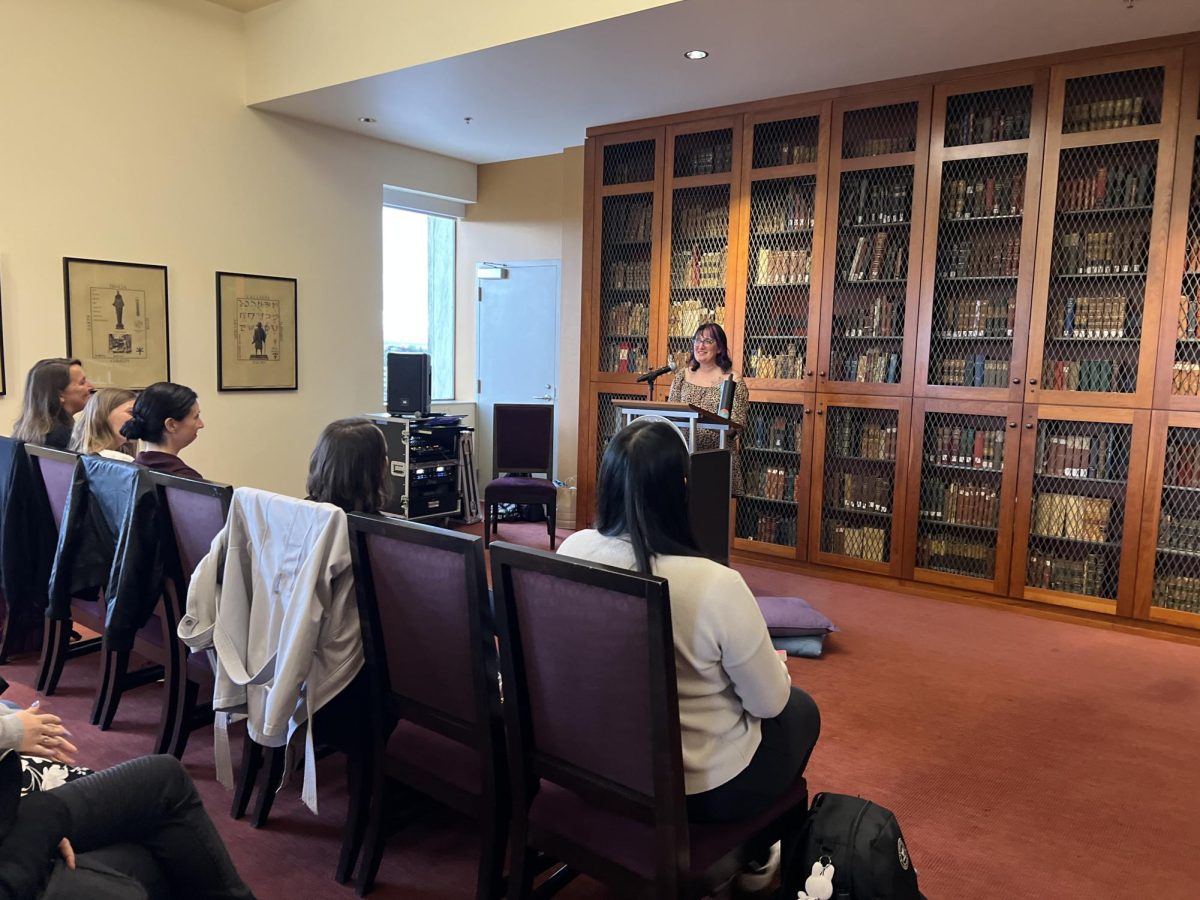
![How “Challengers” Paints Tennis as Sex, Sex as Power [REVIEW & SPOILERS]](https://seattlespectator.com/wp-content/uploads/2024/05/challengers-web-1200x943.png)


